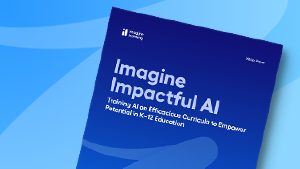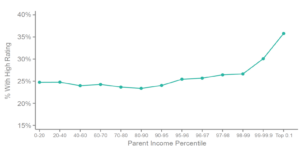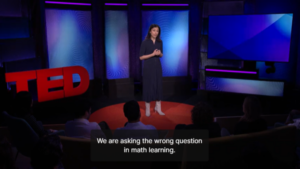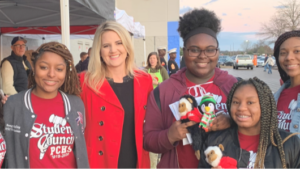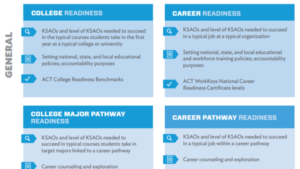
Let’s Get Ready Insights
NGA has collated a variety of resources in support of Governor Jared Polis’ Let’s Get Ready! Initiative
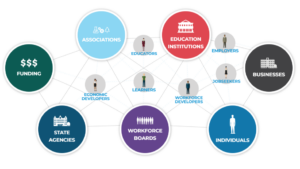
Work Ready Communities
An overview of ACT Work Ready Communities, a county-based skills initiative in place across 32 states that leverages a common language of skills as measured by the ACT National Career Readiness Certificate. The initiative helps communities to strengthen partnerships among educators, skills development providers, and employers and leverages the NCRC to increase credential attainment and to meet local economic needs.
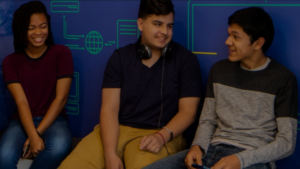
Code Next Affiliates
Through the Code Next Affiliates program, organizations — from schools to nonprofits to higher education institutions — can bring the Code Next experience (computer science education to Black, Latinx and Indigenous high schoolers) to their students. Google provides Affiliates with training, funding, resources, and more.
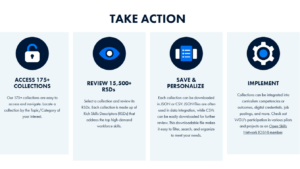
WGU Skills Library
The WGU Skills Library is an open resource of structured skills data that promotes a more equitable skills-driven hiring and education ecosystem that benefits learners, workers, and employers. The Skills Library features more than 175 collections, focusing on occupations and specialty skill areas.

Pearson Skills Map United States
Pearson launched the Skills Map of the United States, an in-depth analysis of the American job market through 2028. Based on an extensive review of 85 million U.S. job ads, economic and labor market data, the Skills Map offers critical insights to help businesses, policymakers and individuals prepare for the future of work.
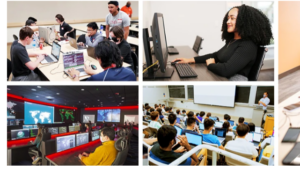
Google Cybersecurity Clinics Fund
In collaboration with the Consortium of Cybersecurity Clinics, Google is supporting selected colleges, universities, and community colleges with up to $1M each to increase access and opportunities for students interested in pursuing careers in cybersecurity. In addition, recipients can access the Google Cybersecurity Certificate, Google Titan security keys, and student mentorship opportunities from Google.
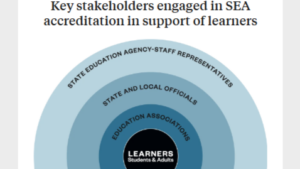
Solutions for States
State education oversight is incredibly complex and demanding. You navigate a changing political landscape, nurture educator development so that all students are college or career bound, collect and use data efficiently, and address diverse stakeholder needs. Our Cognia specialists, former school, district, and state administrators, understand the challenges of state education agencies and integrate seamlessly with your team. Our nonprofit status means we are accountable foremost to serve as a trusted partner in our shared mission to advance learning.

Moving Forward, Looking Back: Analyzing the Path of Rising Talent
This report by WGU Labs focuses on Rising Talent—individuals with low career resiliency and limited higher education. The research identifies challenges that Rising Talent face throughout their lifetimes and offers a blueprint for designing educational programs that meet the needs of this population.
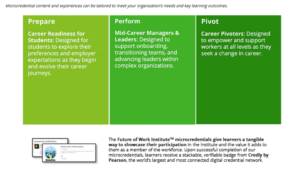
Future of Work Institute
Deloitte’s Future of Work Institute brings the firm’s leading insights on the future of work to organizations through innovative programming that engages and prepares the workforce for a world of work fueled by change and disruption. These experiences equip learners with the human skills that are common across all careers, amplify adaptability in the face of constant change, and provide the framework and environment to design a fulfilling, meaningful work life – all based around the evolution of industries, jobs, and workplace trends.
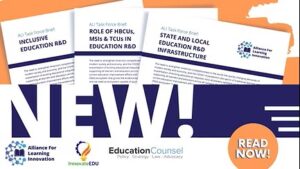
Recommendations To Strengthen Education R&D
Because the American education system is so decentralized, there is a compelling case for investing in education R&D infrastructure at the state and local levels. Among other reasons, over 90% of education funding comes from state and local sources; innovation, decision making, and implementation happen there; and for R&D to be more effective, it must become more proximate to the educators, learners, families, and communities it seeks to support.

2024 State of Student Learning
Four years out from initial school closures, current and prior research identify disparate patterns in academic recovery, including student growth trajectories (Young & Young, 2024). The latest research from Curriculum Associates provides an in-depth analysis of student achievement in mathematics and reading during the 2023–2024 school year, examining what these varied growth patterns mean for grade-level attainment.

Why The Federal Investment In Education R&D Must Increase
In the first analysis of its kind, the team at the Alliance for Learning Innovation estimates that the federal government’s investment in education R&D is around $28 per student. This amounts to only 1.8 percent of federal per student funding.

The Future of a Portrait of a Graduate
The relentless focus on test scores often leaves students struggling to find personal relevance and joy in their education. In response, innovative educators have embraced the Portrait of a Graduate framework, which emphasizes skills like critical thinking and creativity.

Student Growth in the Post-COVID Era
Our research reveals disparate trends by student age during the pandemic, prior achievement, and school and community characteristics. This research is some of the first to analyze impacts for the youngest learners—children three or four years old and not yet in formal schooling at the onset of the pandemic.

AI Opportunity Fund for the United States
The AI Opportunity Fund is a $75M commitment to help all Americans benefit from the opportunities of AI, and demonstrates how the company invests in people, education, and training programs that help workers, learners, and small businesses of all backgrounds learn to use AI effectively.
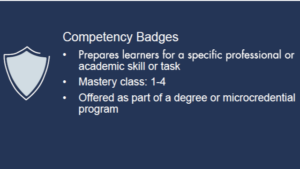
Unified Credential Framework
WGU’s Unified Credential Framework (UCF), highlighted in The International Journal of Information and Learning Technology, is a strategy for ensuring credentials are relevant, verified, transparent, and portable. The UCF is predicated on the use of skills as an underlying foundation.

Self-Regulated Learning and Metacognition
This is an example of Pearson’s Learning Design Principles, which describe the optimal conditions for learning, using the best insights from the cognitive and learning sciences. Each principle covers: (1) The learning science research that informs the principle; (2) Why it matters in learning; and (3) How we can apply it in practice.

Self-Management: Skill Development Framework
Pearson has created an Employability Framework that organizes key competencies needed in the workforce within four categories, including core academic, occupational, personal and social, and career knowledge and transition skills. Within the Personal and Social Capabilities category, we have created Skill Development Frameworks that provide a research-based definition of each skill, along with relevant sub-skills, broken down into detailed sets of ordered indicators that describe how the skills develop from basic to complex levels.

BEYOND CLASSROOM BORDERS
This pre-pandemic paper commissioned by ACE highlights the critical career-relevant skills students need and that faculty must embed throughout the curriculum to prepare students for the future of work. It pays particular attention to learner adaptivity as a key skill and aptitude students need to navigate an increasingly complex and uncertain world of work.


